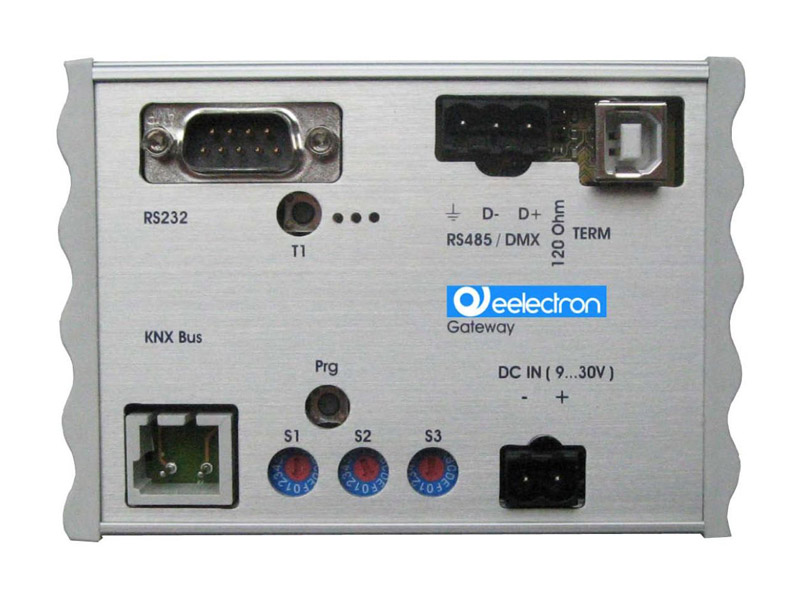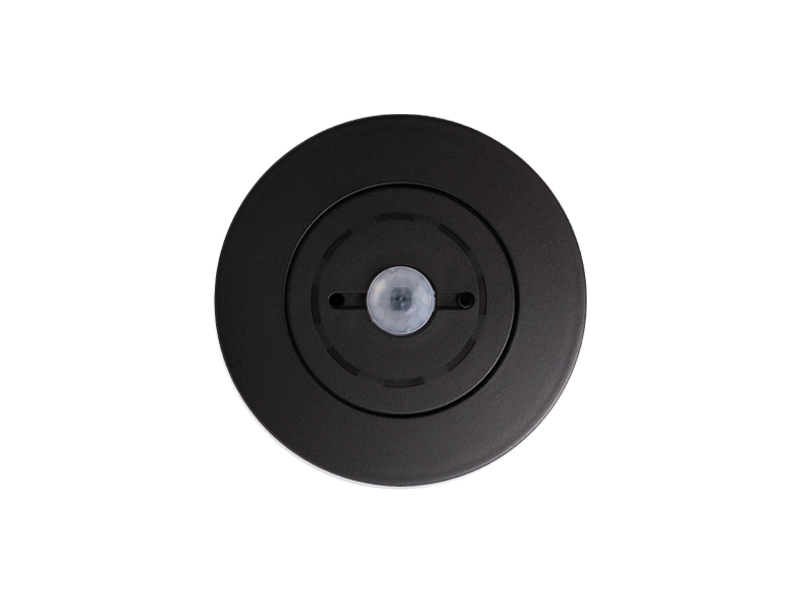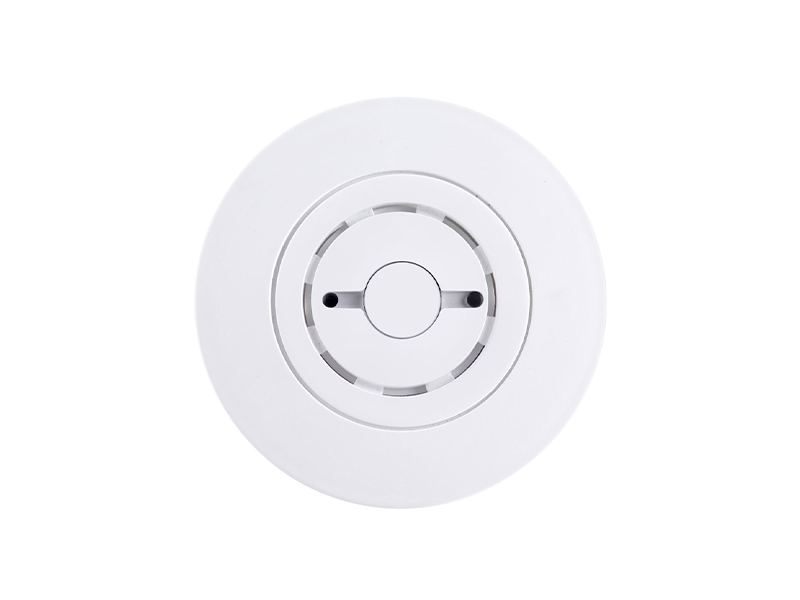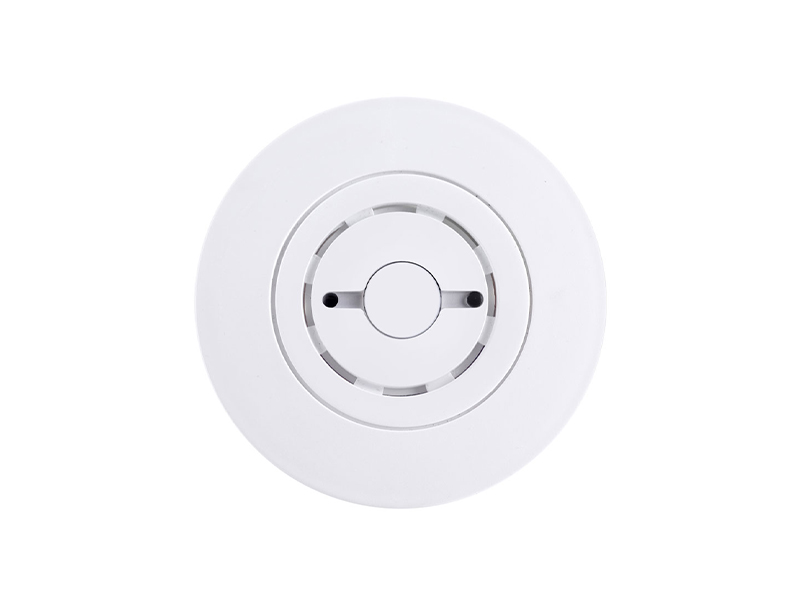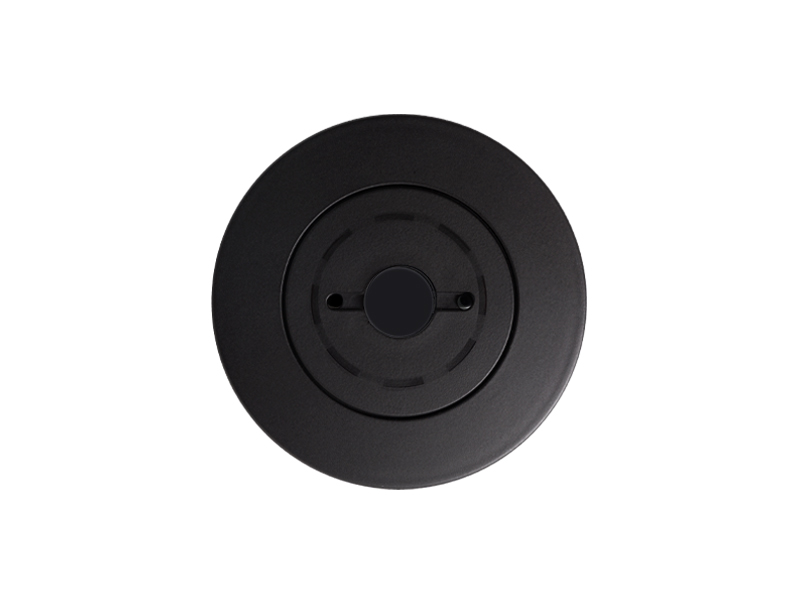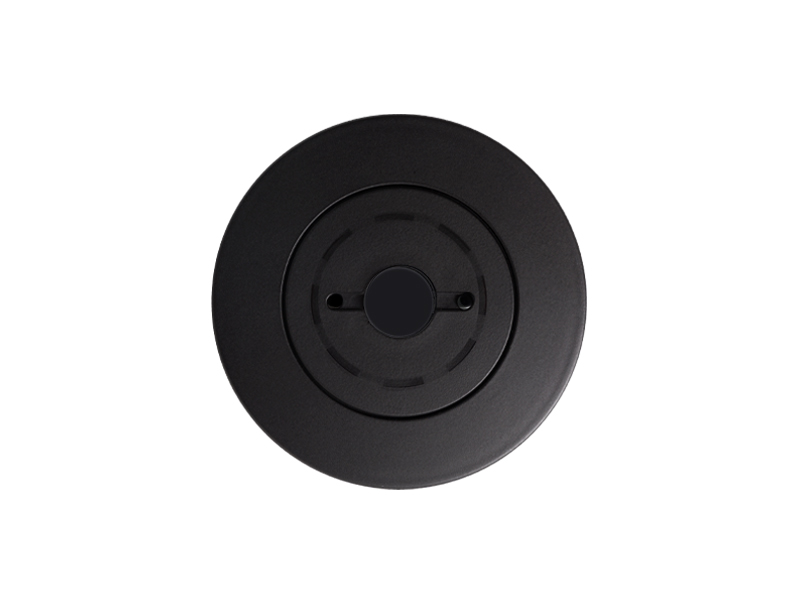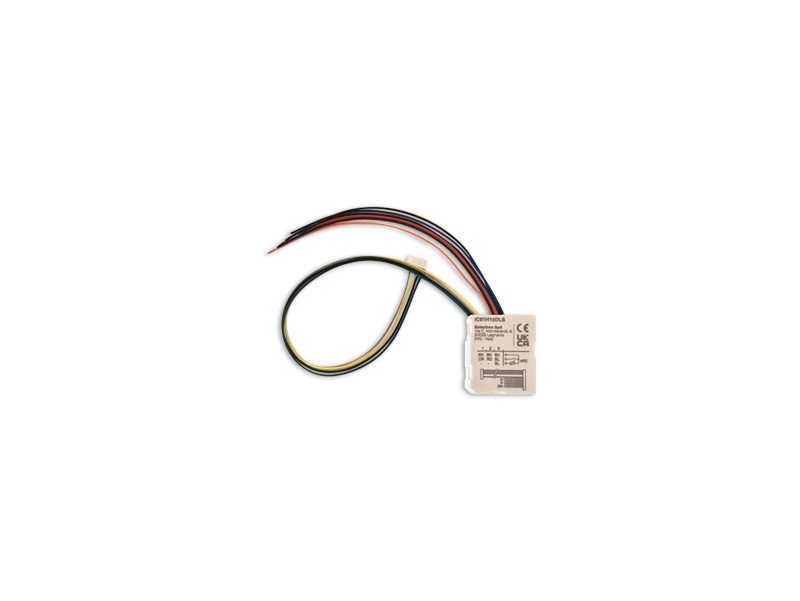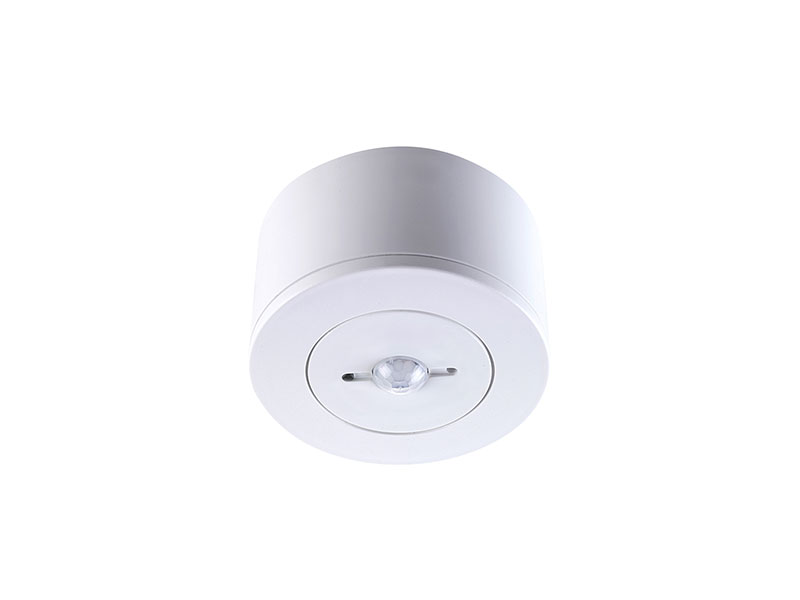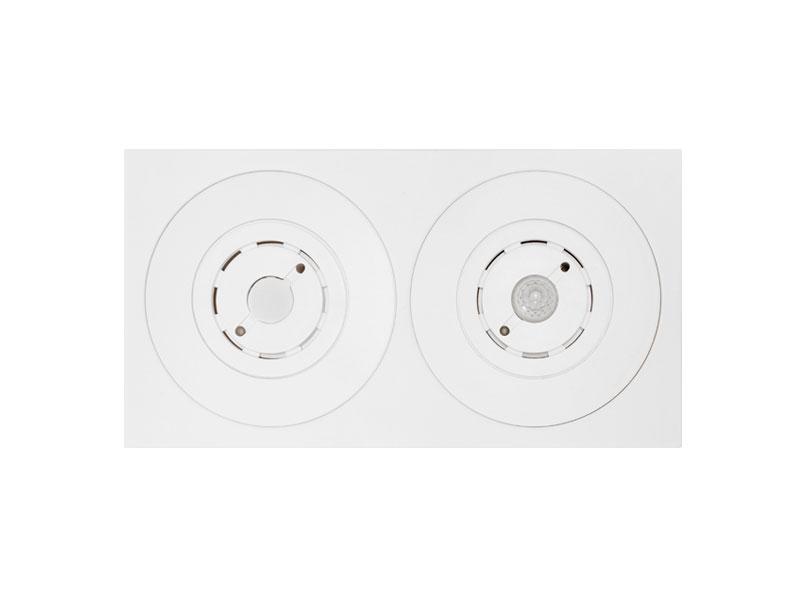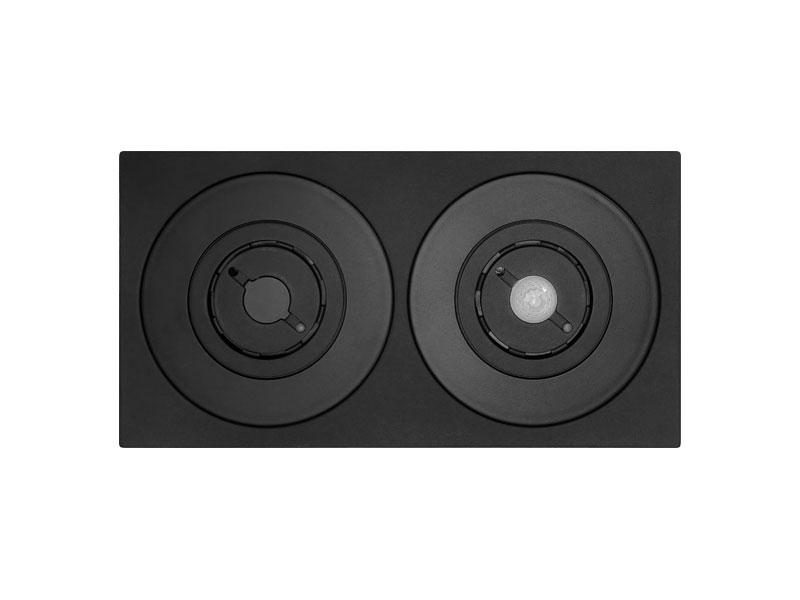KNX Presence detector Space BLE
Code:PD00E13KNX
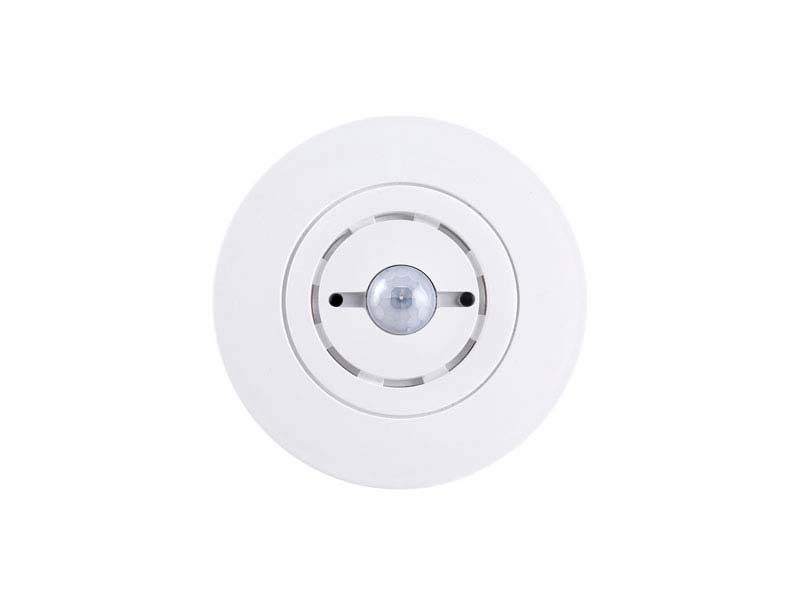
Code:PD00E13KNX
The SPACE BLE sensor includes a brightness sensor for environmental lighting control, humidity and temperature sensors with the relative control algorithms and a sound sensor that can be used in rooms with parts not totally visible to the infrared sensor.
A rear connector with 3 digital inputs that can be connected to buttons or switches free of potential and used for on / off commands, dimming, shutters or blinds / scenarios, sequences, step commands, etc.
One of the 3 inputs can be configured as analogue for the connection of NTC temperature probes (see eelectron probes code TS00A01ACC / TS00B01ACC / TS00D01ACC) with which to send the temperature measurement on the bus or manage a complete thermostat module. The thermostat manages 2 stages with an integrated PI controller for controlling heating and cooling equipment, valves, 2 and 4-pipe fan coils, etc.
The device allow integration with the Plug-in wireless door lock system interface (IC01H10DLS) for the detection of door opening / closing data and the management of an automated room KNX. The plug-in can manage up to 8 doors and allows the wiring of the three rear inputs which remain available even if the plug-in is connected to the rear connector.
It integrate an antenna with BEACON BLE (Bluetooth Low Energy) function. Data format compatible with iBeacon® and Eddystone®The devices allow you to set the transmission frequency and signal strength.
BLE technology allows the sending of messages to mobile devices. These devices must have an app that allows them to retrieve information from BLE beacons.
The humidity sensor manages the measurement of the ambient relative humidity and allows the control with thresholds and hysteresis of humidification and dehumidification equipments.
The presence detection is based on a passive infrared sensor, it has 5 independently configurable channels with different functions that can be activated: presence with or without brightness control and with automatic or semi-automatic detection; constant brightness independent or presence dependent with automatic or semi-automatic activation.
Moreover, 12 logic blocks are available to implement simple expressions with logical or threshold operator or complex expressions with algebraic and conditional operators; It’s possible to use predefined algorithms as proportional controls of temperature and humidity or dew point calculation.
The device also integrates the “Virtual Holder Logic”; the field of application is the hotel room: through a magnetic sensor installed on the door and connected to a digital input (also to the sensor itself), accurate presence information is managed. The presence detection solution can deduce the presence of people in the room using one or more dedicated sensors. It also detects an unexpected presence and is able to differentiate more behaviors.
The device manages the ambient lighting based on the measured illuminance; it is also possible to enable the logic called “Circadian Rhythm” with which brightness and color temperature are imposed on the basis of predefined curves or on the basis of the real position of the sun during the day with respect to a terrestrial coordinate. This function allows you to recreate lighting comfort in an environment as close as possible to reality.
The measurement of lighting in the environment is carried out indirectly and it is therefore necessary to carry out a calibration. The sensor is installed on the ceiling and the detected brightness may differ significantly from that of the work surface; using the ETS software it is possible to set correction parameters for the device basing on a local measurement using the lux meter.
Avoid direct sunlight or artificial light radiating the sensor directly.
The SPACE BLE sensor integrates the “Utilization function” which enables functionalities for mapping space status and related usage/availability (eg occupancy index and % of utilization rates) and the “Occupancy function” that detects useful data for the processing of information related to the intensity of the activity of the occupants within the monitored areas (to generate a ‘heat map’ of the building areas).



